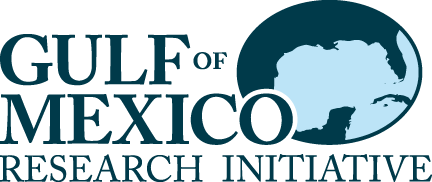Summary:
The PIs and their collaborators at several institutions are conducting coordinated efforts to address hypotheses about community change in coastal marshes resulting from presumed stressors linked to the Deepwater Horizon oil spill and response efforts. The coastal marshes impacted by this spill, and the effects of the spill itself, are complex both spatially and temporally. A means to accurately locate and assess lingering areas of impact require more than coarse-scale tools such as publicly available maps (i.e., GeoPlatform).
We request funds to analyze water, air, and sediment samples for hydrocarbon contamination while in the field as well as funds to conduct stable isotopic and trace element analyses on biota collected from these field sites in September 2011. We will use these data to: (1) refine sampling site locations and sample number during our May and September 2011 field efforts (already funded by NSF and the Northern Gulf Institute [NGI]), and (2) establish sites for longer-term research efforts. Linked to this proposal is a separate LSU GRI round II proposal “Chronic subclinical stress, reproductive success, and selection for oil-resistant genotypes in a coastal marsh specialist, the Seaside Sparrow“ (PIs = Taylor, Stouffer, & Woltmann). The Taylor group will share field sites that we identify and perform additional, but not redundant, oil analyses (as needed).
Our group is working to quantify and understand the effect of stressors – i.e., hydrocarbons, dispersants, freshwater diversion, and other remediation-related human activities – on marsh and adjacent open water communities. Specifically, we are measuring the effects of stressors on soil strength, marsh grass roots and above-ground biomass, insect and spider populations, and selected mollusk species (in the marsh and adjacent open waters). Stressors have both direct and indirect effects because, as hydrocarbons degrade, these compounds enter food webs via primary consumers such as mollusks and insects/spiders. These primary consumers, in turn, serve as food sources for higher trophic levels such as frogs, fish, birds and, ultimately, humans. The effects of a stressor can cascade through the community as members of lower trophic levels undergo changes in growth rate, mortality, reproduction, and recruitment. As a result, species turnover occurs and food web configuration and stability are altered. Our goal is to provide a benchmark study in ecosystem change analysis, to identify precursors to ecosystem trajectories before alternative states are realized, and to address societal concerns about wetland stability.
For this proposed work, we will choose up to 12 sites in Barataria Bay that should show evidence of heavy, light or no oiling. Our preliminary results indicate, however, that natural spatial variability may be larger than anticipated, and that documentation of site oil exposure is only grossly quantified by publically available data. Air, pore-water, and sediment samples will be taken and immediately analyzed (~15 min/sample) using two gas chromatographs (GC) onboard a research vessel (e.g., LUMCON’s R/V Acadiana). Insects/spiders, mollusks and marsh grass also will be sampled to calibrate biotic responses to measured hydrocarbon concentration and composition. We will conduct trace element and stable isotopic analyses on a portion of the biota sampled to determine contamination exposure and document trophic effects of stressors.
